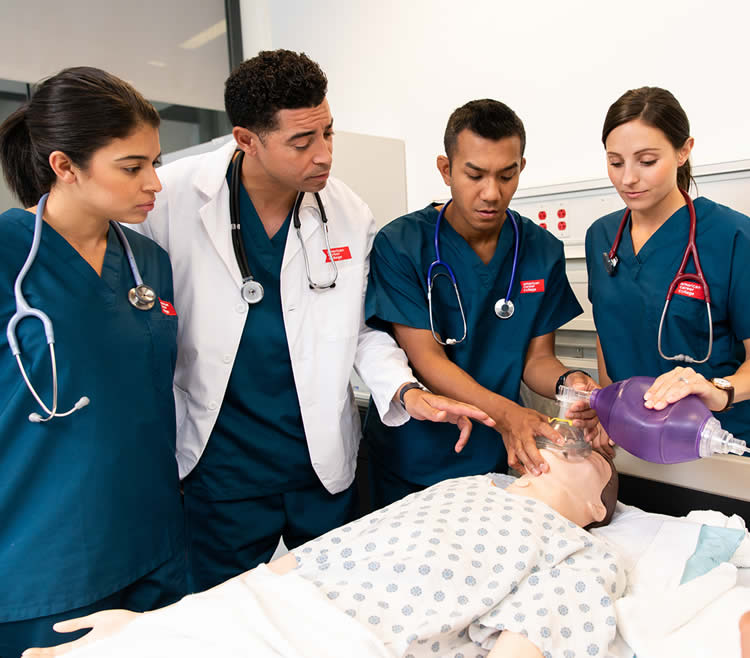Enrolling in a respiratory therapy program opens the door to a career dedicated to saving lives and improving health. From helping premature infants take their first breath to assisting elderly patients with chronic lung conditions, respiratory therapists make a meaningful impact every day.
What Does a Respiratory Therapist Do?
Respiratory therapists specialize in diagnosing and treating breathing disorders. They work in hospitals, clinics, and home-care settings to support patients with asthma, COPD, and other respiratory challenges. Whether administering oxygen therapy or operating life-support systems, their role is vital to modern healthcare.
One story that stands out is about Jessica, who struggled with severe asthma as a child. Her respiratory therapist not only provided immediate relief during attacks but also educated her on long-term management strategies. Inspired by that experience, Jessica enrolled in a respiratory therapy program and now helps patients facing similar challenges.
Why Choose a Career in Respiratory Therapy?
High Demand and Job Stability
Respiratory therapy is one of the fastest-growing healthcare fields. With respiratory conditions on the rise, there is a consistent demand for skilled therapists. According to the Bureau of Labor Statistics, the field is projected to grow by 23% over the next decade. This growth ensures job stability and a steady income.
Hands-On, Rewarding Work
If you enjoy working directly with patients, respiratory therapy offers a hands-on experience that few careers can match. Therapists see immediate results from their efforts, whether it’s calming a child with an asthma attack or supporting a patient recovering from surgery.
Mark’s story highlights this aspect perfectly. After suffering a traumatic lung injury in a car accident, he relied on a respiratory therapist to regain his ability to breathe without assistance. That therapist’s compassion and expertise inspired Mark to switch careers and pursuetraining in the field.
Flexible Work Settings
Respiratory therapists have the flexibility to work in diverse environments. Hospitals, rehabilitation centers, and home healthcare services all require their expertise. For those seeking even more variety, positions in sleep clinics, pulmonary rehabilitation programs, and diagnostic labs are widely available.
Key Skills You’ll Learn in a Respiratory Therapy Program
Patient Assessment and Diagnostics
Students learn to evaluate patients’ respiratory health using tests like pulmonary function studies and blood gas analysis. These diagnostic tools help determine the best treatment plans.
Therapeutic Techniques
A major focus of training includes therapies such as chest physiotherapy, aerosol medication delivery, and mechanical ventilation management. Graduates leave with the skills needed to handle complex equipment and life-saving interventions.
Critical Thinking and Problem Solving
The ability to make quick decisions under pressure is crucial. Respiratory therapy programs emphasize problem-solving in high-stress situations, preparing students to think on their feet.
Real-Life Benefits of Certification
Higher Earning Potential
Certified respiratory therapists often earn higher salaries than non-certified counterparts. Certification also opens doors to leadership roles and specialized positions, such as neonatal or pediatric care.
Expanded Career Opportunities
Graduates can pursue advanced roles in teaching, research, and even equipment sales, providing multiple career pathways. The certification process ensures therapists meet national standards, increasing their credibility and employability.
Who Should Consider a Respiratory Therapy Program?
This field is perfect for individuals who are compassionate, detail-oriented, and thrive under pressure. Whether you’re a recent high school graduate or someone seeking a career change, the structured training and clinical practice make it easy to transition into the workforce quickly.
Many programs also offer flexible schedules, including evening and weekend classes, making it accessible for working adults.
Is Respiratory Therapy Right for You?
Imagine being the person who brings relief to someone struggling for breath. Whether it’s calming a panicked child during an asthma attack or stabilizing a patient in the ICU, this career allows you to make an immediate and lasting impact.




